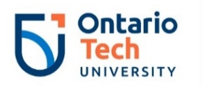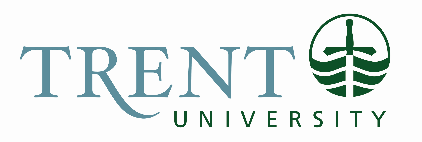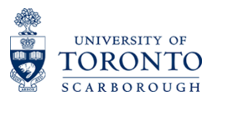EaRTH District Collaborative Research Grant - Call for Joint Proposals





EaRTH District Collaborative Research Grant
The EaRTH District Collaborative Research Grant (EDCRG) competition aims to develop collaborative projects with industry and government partners in the eastern GTA including Scarborough, Durham Region, and Peterborough. It will explore synergies that can strengthen and enhance the Canadian clean technology sector, and provide increased opportunities for economic development that will foster the creation of highly skilled jobs and support the transfer of knowledge to society. The Initiative includes shared research facilities, joint research projects, and collaborations on teaching and learning.
2022-2023 Call for Collaborative Research Grant Proposals
Centennial College, Fleming College, Ontario Tech University, Trent University and the University of Toronto Scarborough are contributing matching funds to support collaborative research initiatives through a joint call for proposals. The overall aim of the grant program is to provide initial seed funding over 18 months for the development of high-quality multi-year sustainable collaborative research projects in areas of mutual strength and shared interest that advance the EaRTH Initiative.
This grant program is available for faculty members/staff at the participating institutions to undertake short-term visits to initiate, deepen and extend collaborative research links with the goal of developing successful joint proposals to external sponsors that will enable the continuation of the collaborative research efforts amongst the partner institutions. Awardees may be asked to present their activities/findings at a future EaRTH Research Spotlight event.
The theme for the 2022-2023 year is Sustainable Transportation, Mobility, and Electric Vehicle Innovations.
The call will focus on collaborative research in areas including but not limited to:
- Connected Vehicles
- Connectivity and connective communications
- Cloud computing and data analytics
- Telematics
- Ethics and cybersecurity
- Data management and storage
- Autonomous Transportation
- Sensors and sensor data
- Human-machine interface
- Safety
- Artificial Intelligence and Machine Learning
- Autonomous vehicles and their impact on industry (construction, mining, warehousing, etc,)
- Shared and Integrated Mobility
- Shared transportation and mobility solutions (ride sharing, car sharing, collective use, etc.)
- System and/or network optimization
- Logistics and supply chain integration
- Vehicle networks
- Electrified and Zero Emission Technologies
- Batteries and fuel cells
- Charging and alternative fuelling technologies, equitable availability of charging and fuelling infrastructure for remote, and underserviced communities.
- Lightweight fibres and materials
- Critical service network development and skilled trades training requirements to transition to low-carbon transportation alternatives
- Powertrains and lubricants
- Critical minerals
- Supply chain of materials
- Impacts of new technology transition on transit networks.
Research may be in the areas of science, technology, policy, culture, communications, networks and systems, economy, environment, or other areas as they relate to sustainable transportation, mobility, and electric vehicles.
Proposal Parameters
- Team Composition: To be eligible a proposal must include a team of participants from all five institutions. The lead applicant for a proposal is responsible for identifying and recruiting relevant team members from the partner institutions.
- Funding Envelop: The funding envelope comprises CAD$50,000 of seed funding per project. Note: Each partner institution will disburse $10,000 in funding for each project to the lead faculty/staff member from its institution. Up to three (3) joint projects will be selected for a funding period of 18 months. Proposals should be framed as the initial stage of a multi-year sustainable project with deliverables.
- Eligible Research Activities: Proposals may include, but are not limited to, research projects, workshops, symposia, faculty/staff exchanges, research seminars/presentations and the formation or development of a collaborative network. Proposals with the potential for launching student exchanges between all partner institutions are particularly encouraged.
- Eligible and Ineligible Use of Funds: Eligible costs include direct costs of research, such as student and research personnel stipends, consumables, travel, and accommodation. However, participating colleges may provide up to $10,000 faculty course-release time, student research stipend, travel, etc. The following costs are ineligible: equipment, scholarships, conference attendance, tuition fees, capital costs, space and amenities.
- Adjudication Process: The proposals will be assessed and recommended for selection by a committee composed of members from all participating institutions appointed by the Vice-Presidents/Vice-Principals/Deans for Research and Innovation or their designate.
Eligibility
Faculty members/Staff from all disciplines and at all stages of career are welcome to apply. The lead applicant(s) must be full-time faculty/staff member(s). Please note that eligibility criteria may differ at participating institutions, as such, please contact your research office for details.
Value and Duration
Up to three (3) successful proposals will receive up to CAD$50,000 each for a funding period of 18 months to support collaborative research activities.
Timeline
Call for proposals opens - December 15, 2022
Deadline for submission of LOI - February 1, 2023 - CLOSED
Deadline for submission of proposal - March 6, 2023
Communication of results to applications - Spring 2023
Project start and end dates - May 1, 2023 to November 1, 2024
The detailed program guidelines provide further information. This document is also available as a PDF.
Submission of Proposals
This is a joint call, and the lead faculty member from each institution should submit an application to their institution’s research office (please see section 9 below for institutional contacts).
A full proposal is comprised of the following elements:
- A proposal cover sheet that identifies the lead faculty member and collaborators from each institution with contact details.
- Each faculty member involved in a project may need to provide a brief letter of support from their Department Chair/Dean indicating permission has been granted for said faculty member to participate (please confirm with your institutional contact).
- A project description of no more than 5 pages (12pt Times New Roman or 11pt Arial) that includes the following items (in alignment with the selection criteria listed below):
- Abstract: A brief paragraph (maximum of 250 words) that describes the project.
- Description of the planned activities: Detailed project plans for the year (for example, seminars, short courses, visits to other institutions that carry out research activities, etc.), including rationale and timeline.
- Project impact: The EaRTH District embraces the 17 United Nations Sustainable Development Goals (SDGs) where development must balance social, economic and environmental sustainability, and it is strongly recommended that projects are linked to one or more of these goals. Additionally, describe the expected academic gains for the project as a result of the proposed cooperation, and the identification of corresponding performance indicators and outputs (e.g. a publication, blog, meeting report, etc).
- Impact of collaboration: Anticipated benefits of the collaboration to the faculty member’s other active research and with regard to strengthening the overall partnership between the institutions.
- Student involvement: Listing of opportunities for student(s) engagement, anticipated benefits to the project as well as the number of anticipated student(s) who will be directly involved in the project, as applicable.
- Equity, Diversity and Inclusion (EDI): How does the project advance equity, diversity, and inclusion within the theme of the call?
- Capacity for future collaboration: A description of the potential future collaborations and outcomes that will be possible as a result of having undertaken the proposed collaboration. For example: joint publications; joint supervision of students; joint patent applications; joint reports to governments; and joint funding applications.
- Proposed budget: A breakdown of the cost of the activities, research assistant costs, consumables, travel, accommodation, including anticipated hours for College faculty/staff and students.
- Abbreviated Curriculum Vitae (CV): The application must include a CV of no longer than 5 pages for each of the participating faculty/staff members, with a selected list of publications.
- Research Approvals: In some cases, ethics or other approvals may need to be secured. Applicants are encouraged to seek approval concurrently.
Evaluation Criteria and Weighting
A joint review committee from all participating institutions will assess each full proposal according to the academic merit and compelling elements covered by the following criteria:
Project design and rationale (20%): How clearly presented and justified is the design and basis for the collaboration?
Feasibility (15%): How likely is it that the project will have tangible outcomes/and that the project can be accomplished within the 18-month timeline?
Project impact (15%): How does the project correspond to one or more of the 17 United Nations Sustainable Development Goals (SDGs)? How clearly linked are the scholarly/academic gains to the planned activities and performance indicators?
Impact of collaboration (15%): How strong is the link being between the proposed collaboration and current research or teaching project(s)?
Equity, Diversity, and Inclusion (10%): How does the application propose to address and advance EDI?
Student involvement (10%): Are opportunities provided for students to engage in the collaboration? What are the anticipated benefits of student engagement in the project and for the individuals themselves?
Capacity for future collaboration/funding (15%): What is the extent to which the potential for future collaborations is enhanced as a result of the proposed exchange activities? What is the ability of the proposal to leverage future external funding?
Reporting After Project Completion
All project leads must, as a condition of receiving an award under this call, complete a narrative report (between 1 and 2 pages) that describes the outcomes, nature of collaboration, project impact, trainee involvement and opportunities for future collaboration that evolved from their project. This report must be submitted to the research office at each of the five partner institutions by November 15, 2024. Participation at a joint research symposium is expected.
Program Duration
This program will operate for the period of 2021-2026, pending a subsequent agreement by all of the partner institutions to continue its operation. However, partner institutions can withdraw from the program should institutional circumstances necessitate that they do so, provided they notify all partners of their intent to do so prior to the announcement of the forthcoming Call for Proposals.
Institutional Contacts
Interested faculty with questions about this opportunity should contact their institutional representative, identified below.
Centennial College: Jonathan Hack, Executive Director, Applied Research, Innovation and Entrepreneurship Services (jhack@centennialcollege.ca / 416-289-5000: Ext. 8152)
Fleming College: Brett Goodwin, Vice President, Applied Research and Innovation (Brett.Goodwin@flemingcollege.ca / 705-324-9144 x 3093)
Ontario Tech University: Jennifer Freeman, Executive Director, Office of Research Services (research@ontariotechu.ca / 905-925-9966)
Trent University: Inna Seviaryna, Research Facilitator, Office of Research and Innovation (innaseviaryna@trentu.ca/ 705-748-1011: Ext. 6186)
UTSC: Suhail Asrar, Research Partnership and Business Development Officer (suhail.asrar@utoronto.ca
This document is also available as a PDF.
